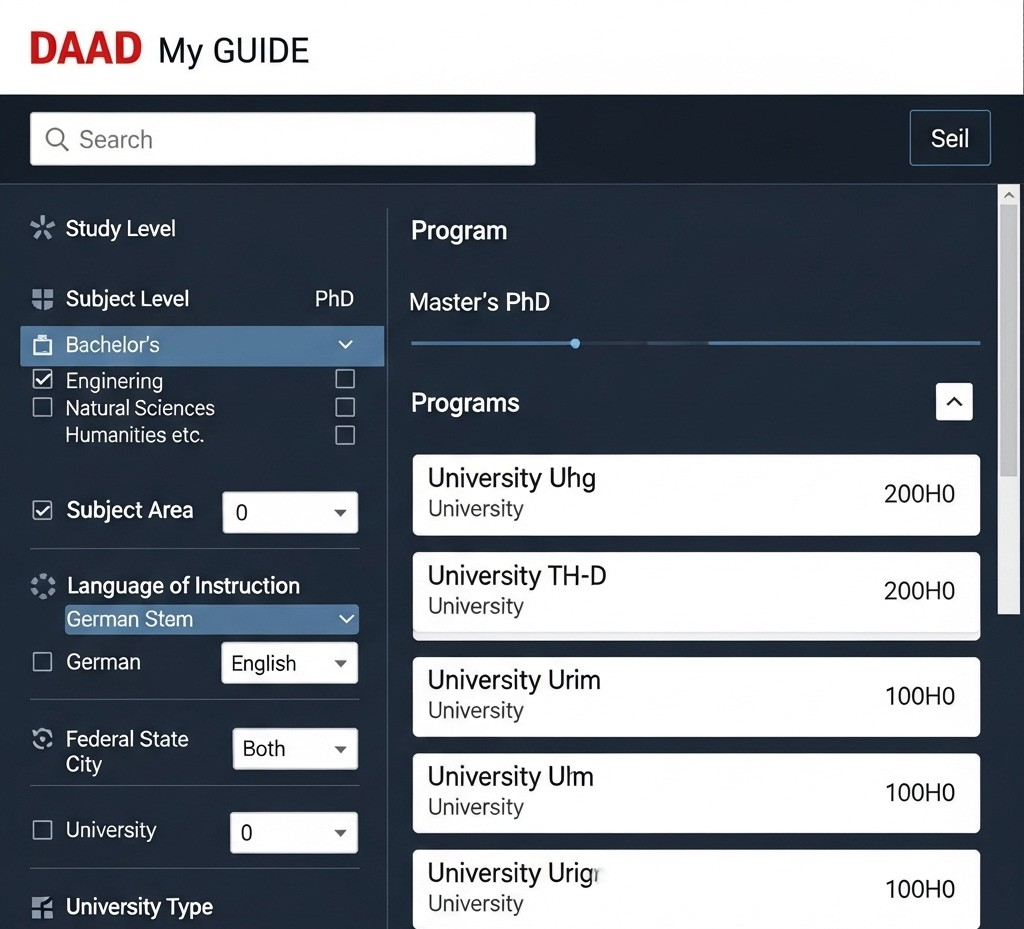Dreaming about how to study for free in Germany as an international student in 2026? You’re not alone. The idea of earning a world-class degree from a country known for its innovation, history, and vibrant culture—without the crushing weight of tuition fees—is a powerful motivator. Germany makes this incredible opportunity a reality. This guide will break down the entire process, step-by-step, transforming your ambition into an actionable plan. We’ll cover everything from finding the right university to navigating the visa process, ensuring you feel confident and prepared for your journey.

The Reality of “Free” Education in Germany
So, what’s the catch? The good news is, there isn’t one, but it’s important to understand the details. The majority of public universities in Germany do not charge tuition fees for Bachelor’s and Master’s programs for all students, including internationals. This is a state-funded policy designed to make education accessible to everyone.
However, “free” doesn’t mean zero cost. You still need to account for a few key expenses:
- Semester Contribution (
Semesterbeitrag): This is a mandatory administrative fee charged by all universities, typically ranging from €150 to €350 per semester. It’s a fantastic value, as it usually includes a public transportation ticket for your city, access to student unions, and other services. - Living Expenses: You’ll need to cover your accommodation, food, health insurance, and personal expenses. The German government requires proof that you can support yourself financially.
- The Baden-Württemberg Exception: It’s important to note that public universities in the state of Baden-Württemberg do charge tuition fees of €1,500 per semester for non-EU international students. Always check the specific university’s policy.
Your Step-by-Step Plan for 2026
Feeling ready to get started? Here’s your roadmap to securing a spot in a German university for the 2026 intake.
Step 1: Find the Right University and Program
Your first task is to find a program that aligns with your academic and career goals. Germany offers thousands of options, with a growing number taught entirely in English.
Start your search with these official, reliable databases:
- DAAD’s My GUIDE: The German Academic Exchange Service (DAAD) offers a comprehensive database of nearly 20,000 programs. You can filter by language, subject, and university type.
- Study in Germany: This is the official campaign portal for Germany as a study destination, providing another excellent search tool and a wealth of information.
When searching, pay close attention to application deadlines, which typically fall in July for the winter semester and January for the summer semester.

Step 2: Meet the Academic and Language Requirements
Once you’ve shortlisted some programs, it’s time to check the entry requirements. You’ll need what’s called a Hochschulzugangsberechtigung (HZB), or “university entrance qualification.”
- For Undergraduates: Your high school diploma might not be considered equivalent to the German
Abitur. If this is the case, you may need to complete a one-year preparatory course called aStudienkolleg. - For Postgraduates: A recognized Bachelor’s degree in a relevant field is the primary requirement.
You’ll also need to prove your language proficiency:
- For German-taught programs: You’ll need to pass an exam like the TestDaF or DSH.
- For English-taught programs: An IELTS or TOEFL score is usually required.
Step 3: Secure Your Finances (The Blocked Account)
This is a critical step for your visa application. To prove you can cover your living costs, you must deposit funds into a special Sperrkonto, or blocked account. From this account, you can withdraw a fixed monthly amount.
As of late 2024, the required amount is €11,208 for one year. This figure is set by the German government and is subject to change, so you should always check the official requirements on the “Make it in Germany” portal closer to your application time for 2026. In my experience advising students, the blocked account is often the biggest financial hurdle, so planning for this amount well in advance is crucial for a stress-free application.
Step 4: Apply for Scholarships to Cover Living Costs
While your tuition might be free, a scholarship can be a game-changer for covering your living expenses, potentially even replacing the need for a blocked account.
The most renowned provider is the DAAD (German Academic Exchange Service). They offer a vast range of scholarships for international students. The DAAD Scholarship Database is the best place to find one that fits your profile. Other options include the Deutschlandstipendium and various party-affiliated or private foundations.
Step 5: Navigate the Application and Visa Process
With your documents in order, it’s time to apply. Many universities use a centralized application portal called Uni-assist for international applicants, while others require direct applications.
Typical required documents include:
- Certified copies of your academic transcripts and diplomas
- Proof of language proficiency
- A compelling Letter of Motivation
- Your CV (Curriculum Vitae)
- A copy of your passport
I’ve seen many successful applicants start their document preparation a full year in advance. A well-crafted motivation letter that connects your personal story to your chosen program can make all the difference. After receiving your admission letter, you can apply for your student visa at the German embassy or consulate in your home country.
Life Beyond Tuition: Managing Your Living Expenses
Once you arrive, managing your budget will be key. Your largest expense will be rent, which varies significantly between cities like Munich or Berlin versus smaller towns. On average, a student in Germany spends between €850 and €1,100 per month.
Here are some things to keep in mind:
- Health Insurance: It is mandatory for all residents in Germany. As a student under 30, you’ll be eligible for affordable public health insurance, costing around €120 per month.
- Part-Time Work: As an international student, you are permitted to work up to 120 full days or 240 half days per year. This is a great way to supplement your income and gain practical experience.

Your German Adventure Awaits
Studying in Germany for free is not a myth; it’s a tangible goal that requires careful planning and preparation. By finding the right program, meeting the academic and financial requirements, and navigating the application process diligently, you can set yourself up for an incredible educational experience. Germany offers not just a degree, but a chance to learn a new language, immerse yourself in a new culture, and build a global network.
Your Ultimate Guide to the Chungbuk National University G-Cruit Scholarship for Fall 2025
FAQs
Q1:Can I really study in Germany for free?
Yes, the vast majority of public universities in Germany offer tuition-free education for both undergraduate and graduate programs to all students, including internationals. You will only be required to pay a semester contribution for administrative costs.
Q2:How much money do I need in my blocked account for 2026?
The required amount is set by the German government. As of late 2024, it is €11,208 per year. This amount is subject to change, so you should always verify the current requirement on official German government websites before you apply for your 2026 intake.
Q3:Can I work in Germany while studying?
Yes. International students from outside the EU/EEA are permitted to work for up to 120 full days or 240 half days per year. This does not include work as a student assistant at your university.
Q4:Do I need to speak German to study in Germany?
Not necessarily. German universities offer a large and growing number of degree programs taught entirely in English, especially at the Master’s level. However, learning some basic German is highly recommended to help you with daily life and to better immerse yourself in the culture.










